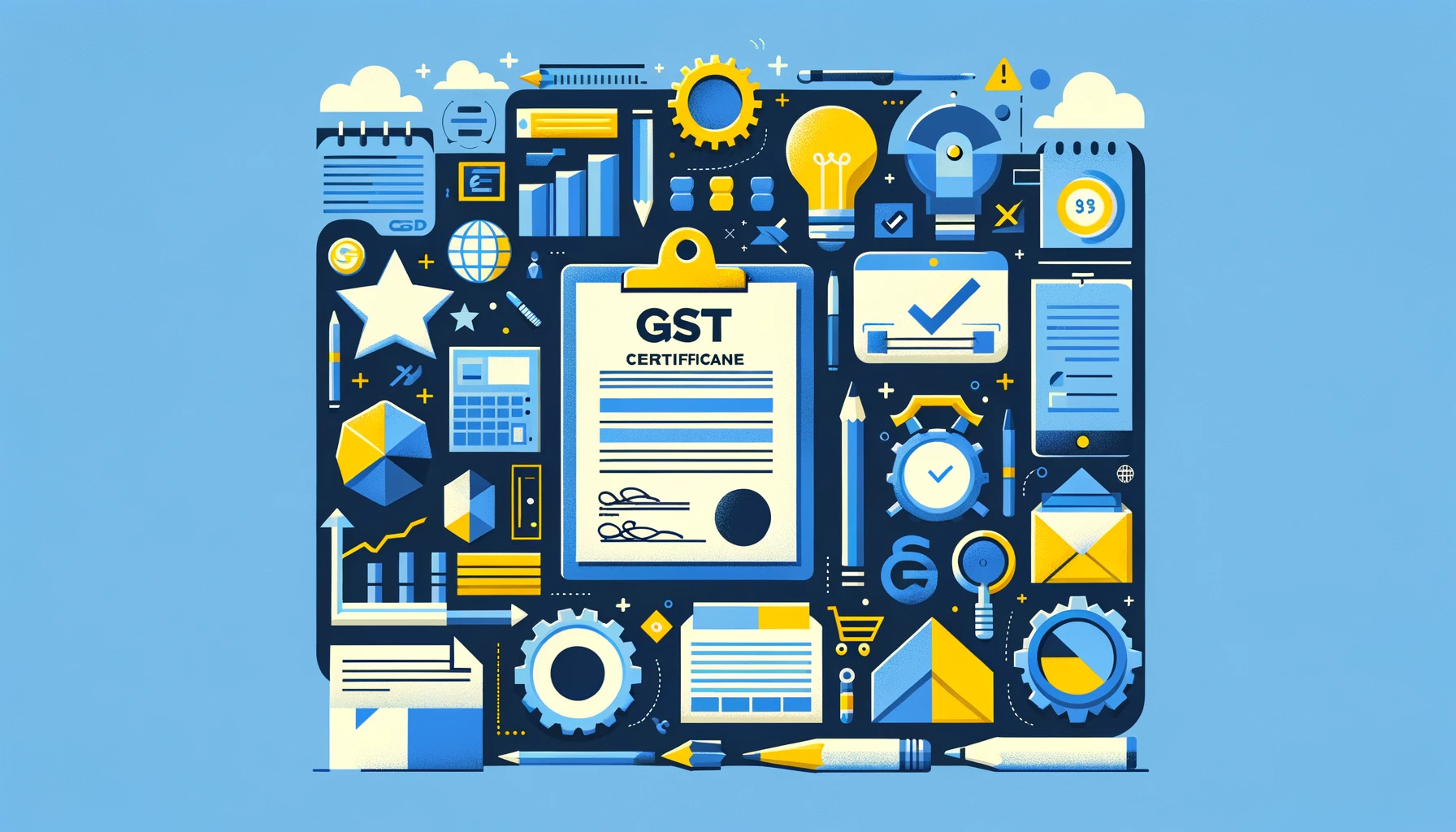In the realm of modern taxation systems, the Goods and Services Tax (GST) has emerged as a transformative force, streamlining the indirect tax structure in India. Among the myriad facets of GST, obtaining a GST certificate holds paramount importance for businesses across the nation. While resources abound on the procedural aspects, delving deeper into the essence and implications of this certificate reveals its pivotal role in the tax compliance landscape.
Understanding the Essence of GST Certificate
At its core, a GST certificate serves as tangible proof of a business’s registration under the GST regime. It acts as a testament to the entity’s compliance with GST laws and regulations, establishing its credibility in the eyes of stakeholders, including suppliers, customers, and regulatory authorities.
Key Aspects and Significance
While the provided source delineates the procedural intricacies involved in obtaining a GST certificate, it’s imperative to underscore its multifaceted significance. Beyond mere documentation, the certificate confers several tangible benefits to businesses, fostering trust and facilitating seamless operations in the following ways:
- Legal Compliance: A GST certificate ensures adherence to statutory obligations, shielding businesses from the perils of non-compliance and associated penalties.
- Access to Input Tax Credit (ITC): Registration under GST and possession of a valid certificate enable businesses to claim ITC on taxes paid on inputs, thereby reducing the cascading effect of taxes and enhancing competitiveness.
- Business Expansion: Holding a GST certificate is often a prerequisite for participating in government tenders, availing loans, or expanding operations beyond state boundaries, thereby unlocking growth opportunities.
- Facilitating E-commerce Transactions: E-commerce platforms mandate GST registration for sellers, making the possession of a GST certificate indispensable for engaging in online commerce.
- Enhanced Credibility: Displaying a GST certificate instills confidence among customers, suppliers, and other stakeholders, bolstering the entity’s reputation and facilitating smoother business transactions.
Answering Common Queries
1. Is a GST certificate mandatory for all businesses? Yes, GST registration is obligatory for businesses with an annual turnover exceeding the prescribed threshold, varying based on the nature of the business and the state of operation.
2. How can I apply for a GST certificate? You can apply for GST registration online through the GST portal by submitting the requisite documents and completing the registration process.
3. What documents are required for obtaining a GST certificate? Commonly required documents include PAN card, proof of business registration, identity and address proofs of promoters/partners, bank account details, and business-specific documents as applicable.
4. What are the consequences of not obtaining a GST certificate? Failure to obtain a GST certificate and register under GST can result in legal repercussions, including penalties and prosecution, along with the loss of various benefits associated with GST compliance.
In conclusion, while the journey towards GST compliance may seem daunting, the rewards far outweigh the effort invested. By recognizing the pivotal role of the GST certificate and proactively embracing GST compliance, businesses can navigate the intricate tax landscape with confidence, paving the way for sustainable growth and prosperity.
If you are seeking expert assistance in accounting, taxation, compliance, starting a business, obtaining registrations, and licenses, FinTax24 is a dedicated team ready to support you at every stage of your financial journey. Their commitment lies in helping you achieve financial success. Feel free to contact FinTax24 today to learn more about how they can assist you.
